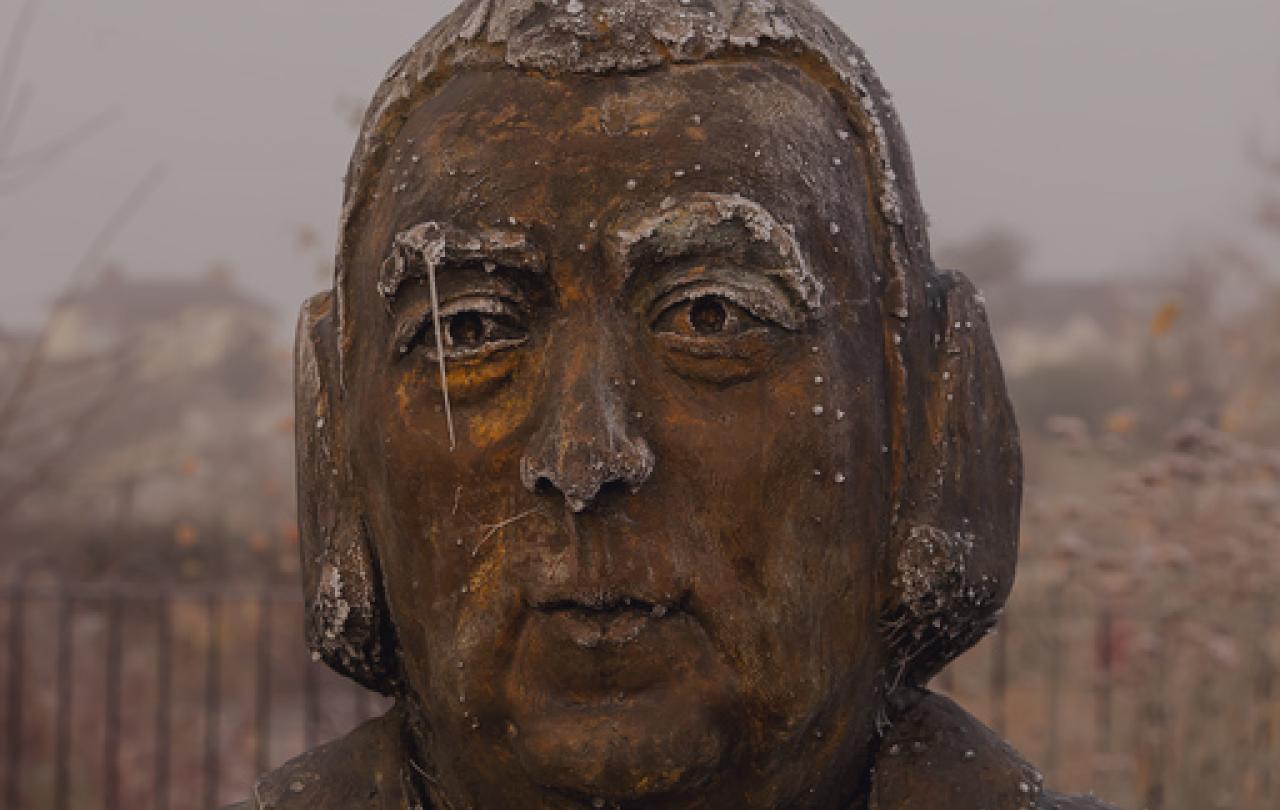
John Newton is back in the news. 250 years ago in January 1773 he wrote the words of what has become the most recorded, performed and loved hymn of all time – Amazing Grace.
As a popular song it is right up there competing with Happy Birthday and I’m Dreaming of a White Christmas. And the spiritual power of its lyrics shines out at an estimated ten million annual weddings, funerals, celebrations and services across the world.
As a biographer of John Newton I have paradoxical feelings about Amazing Grace. I love the hymn as much as anyone particularly when it brings tears in the prison chapels where I serve as a chaplain.
Yet for historical reasons I am disappointed on this great man’s behalf that he is largely remembered only for this hymn.
For there is much more to John Newton than Amazing Grace.
For starters he was so close a mentor to William Wilberforce, and so important a witness as an ex-slave ship captain to the horrors of the evil trade, that without Newton the Abolition of Slavery Act 1807 would never have won the necessary Parliamentary votes to pass into law.
If this great historical achievement was not enough Newton’s colourful back story was the stuff of which best sellers and movies came to be made.
In his wild youth Newton was a serial rebel. He ran away from home, church, school and military service. He was jailed and publicly flogged for desertion from the Royal Navy.
After being thrown out of the Navy he ended up working as a slave trader in West Africa.
There the hard drinking, riotous and ruthless young Newton indulged in every imaginable vice. His business as a brutal kidnapper of natives, whom he sold to slave ships, made him a fortune.
Then came a dramatic change, Newton got religion. This happened on the 9th of March 1748. Newton was on board a ship, The Greyhound, in the middle of the Atlantic Ocean. Suddenly a massive storm wave hit the ship and almost broke it apart. Newton was roused from sleep by a cry of “all hands on deck, the ship is sinking.”
The storm of gale force winds which ripped a huge hole in The Greyhound lasted for the next seven days. For most of that time Newton, a strong young seaman, took the helm. He was certain that he and everyone else on board would be drowned. In desperation he remembered some of the prayers he had learned from his mother, in his childhood, and started to pray for God to save his life.
So when, against all the odds, The Greyhound did not sink and limped into the Port of Londonderry, Newton decided that perhaps there might be a God and began going to church.
Although Newton did start praying and reading his Bible, he did not stop slave trading. Promoted to being a slave ship Captain he made five further voyages to West Africa. On his ships he indulged in many of the vicious cruelties that characterised the slave trade.
Newton kept diaries of these horrors which included chaining, shackling, flogging, thumb screwing and throwing overboard the slaves during their long and dangerous voyage from the West Coast of Africa to the East Coast of America.
Yet gradually, his self-educating Bible study and some teaching from Christian friends caused Newton to see the light. He gave up the slave trade. He got a good shore job in his home port of Liverpool, a city which was being targeted by Methodist preachers such as Wesley and Whitefield.
Newton, by now a soul on fire, became a preacher in dissenter chapels in Lancashire and Yorkshire.
After some years he applied for ordination in the Church of England. But he was turned down for ordination seven times in six years by various Bishops and Archbishops.
These rejections had nothing to do with Newton’s sinful past career as a slave ship Captain. For in the 18th Century, the Church of England was not merely tolerant of the slave trade. It reaped many benefits from its large investments in it and the large donations it received from it. All documented in a recent Lambeth Palace Library exhibition.
Astonishingly the reason why Newton was turned down for ordination was because he was thought to have ‘too much enthusiasm’.
This was a coded phrase meaning that he was felt to be too close to the Methodists whose evangelical preaching and hymn singing was disapproved of by the established church hierarchy.
But with the help of an admiring patron, the Earl of Dartmouth, Newton was ordained as a Church of England priest and appointed to a Dartmouth living at Olney church in Buckinghamshire.
As a Parish Priest Newton was a huge success. He trebled the size of his congregation to over 600 worshippers. As a result, the church had to build a gallery to accommodate them.
But his biggest break through was that Newton started writing articles, books and hymns. These bought him fame and a move to the strategically important church of St. Mary Woolnoth in the heart of the City of London.
During his 28 years of service there, Newton continued to be a best-selling author, a campaigner for social reforms and a renowned preacher. Influential people flocked to hear his sermons including an unknown young MP called William Wilberforce.
Wilberforce first approached Newton to ask him to resolve what the young MP called “my anguish of soul”. He said he wanted to give up being a Member of Parliament in order to become a Minister of Religion.
Newton persuaded Wilberforce that it would be better for him to serve God by staying in Parliament. After taking that wise advice, Wilberforce developed a close friendship and mentoring relationship with Newton.
During the next 15 years there were periods when Wilberforce became depressed and wanted to give up his abolitionist campaign. It was Newton who persuaded him to keep going.
More importantly Newton became Wilberforce’s most vital witness about the horrors of the slave trade in front of a Select Committee in the House of Commons and in front of William Pitt and his Cabinet.
Newton’s authentic eye witness accounts of the suffering of the Africans on board slave ships were devastating.
His evidence and his best-selling pamphlet Thoughts on the African Slave Trade were game changers. Gradually the tide of public and parliamentary opinion turned against the slave trade. Eventually in 1807 when 82 year old Newton was still the Rector of St. Mary Woolnoth, William Wilberforce’s Abolition of Slavery Bill was voted into law by the House of Commons by 283 votes to 16.
It was an historic victory for humanity. And a political triumph for William Wilberforce. But that victory and that triumph would never have been achieved without John Newton’s mentoring, supporting and his giving of vital evidence to Wilberforce’s campaign.
In his last years John Newton was venerated as an iconic church leader, bestselling author, and abolitionist reformer.
Surprisingly, he was not well known in his lifetime for Amazing Grace which only became famous when American churches took it up and made it an anthem of the Civil Rights Movement. So Newton was regarded as a great man long before he was recognised as a great hymn writer.
Fame was of little interest to John Newton. He remained endearingly humble. When he was on his deathbed the 18th century equivalent of a tabloid reporter burst into his bedroom and asked:
“Any last words Mr Newton?”
He replied:
“Sir I know only two things. That I am a great sinner and that Christ is a great Saviour!”
What an exit line! What a life!





